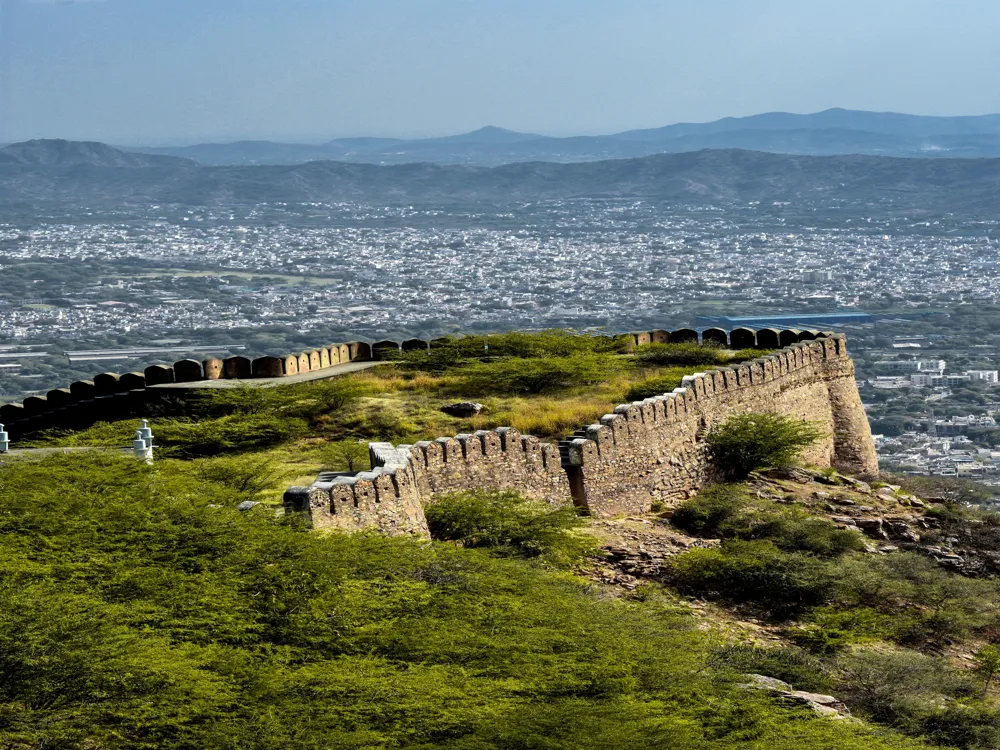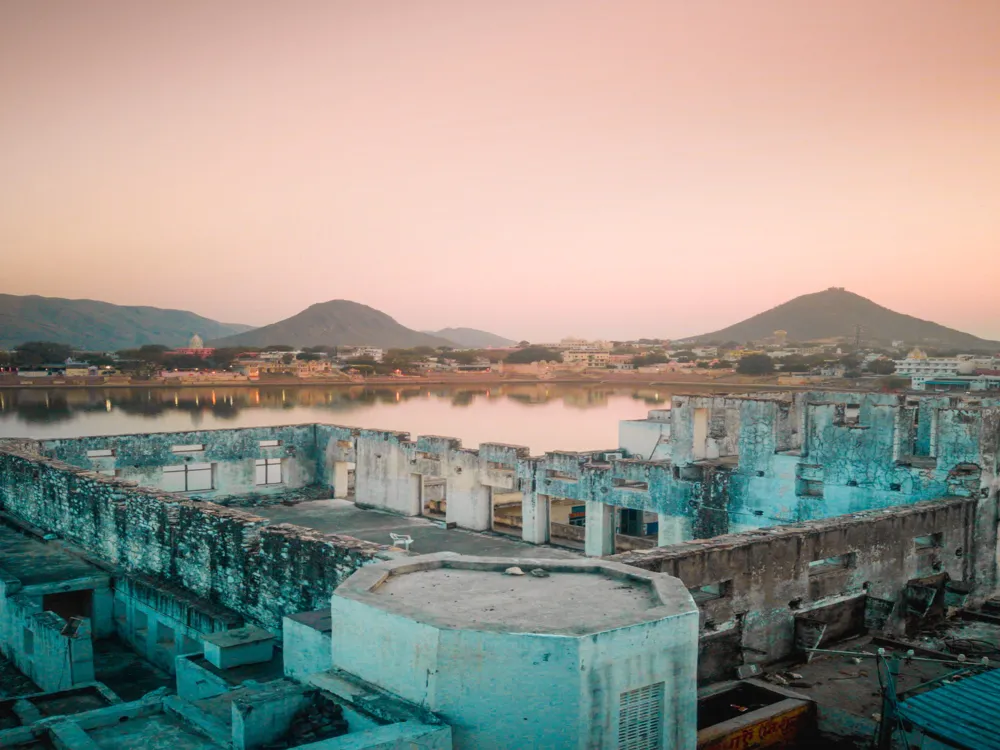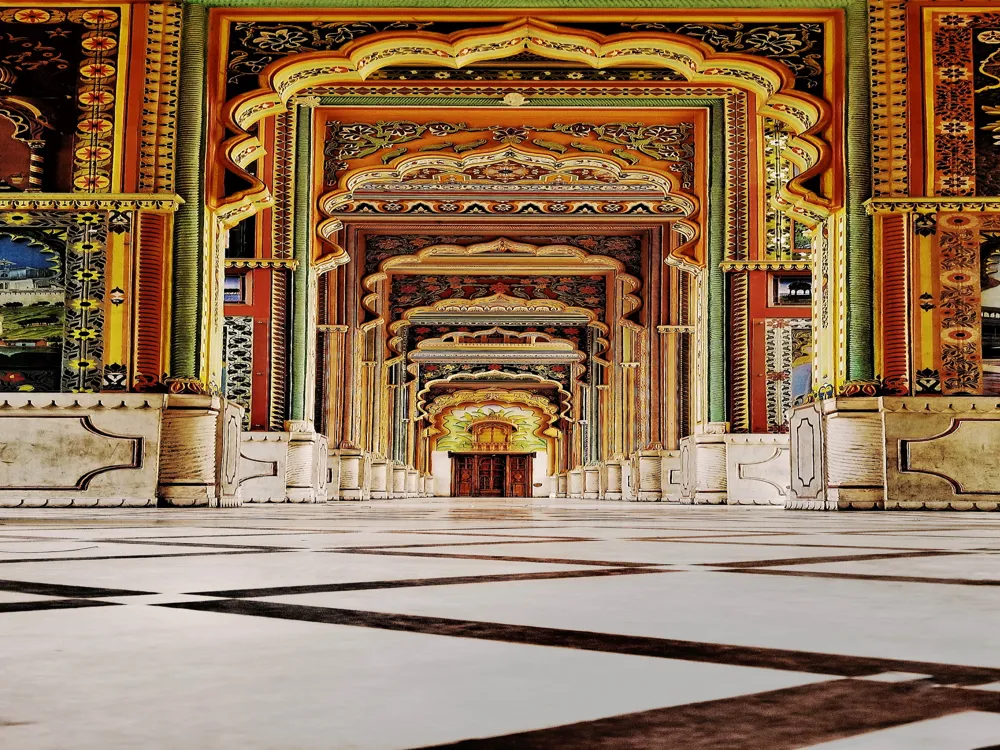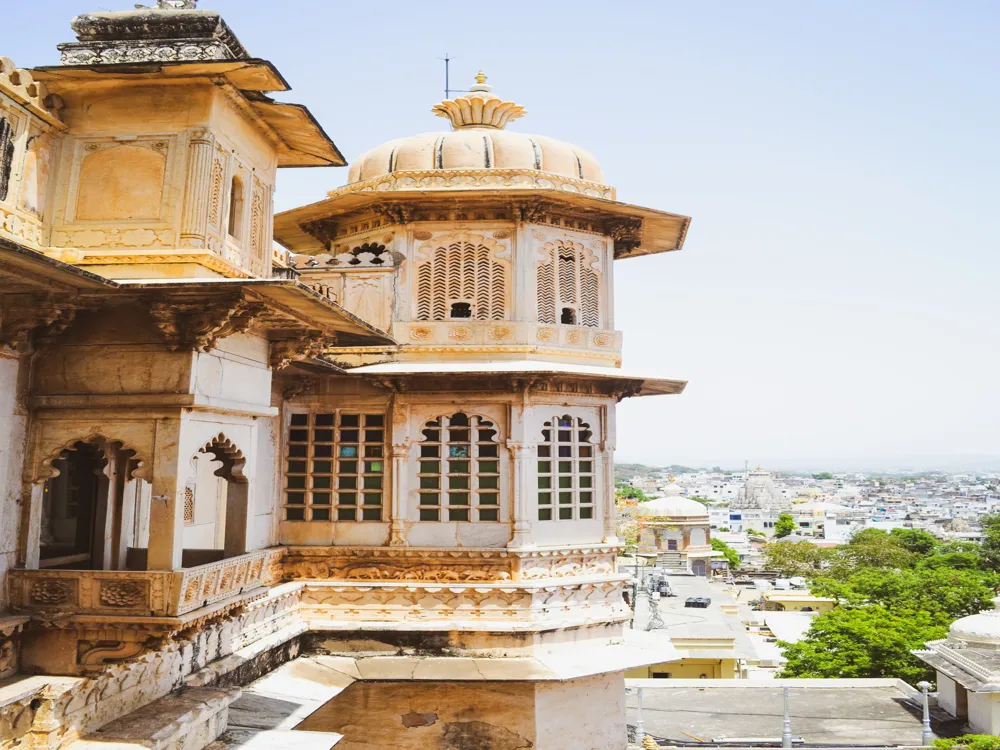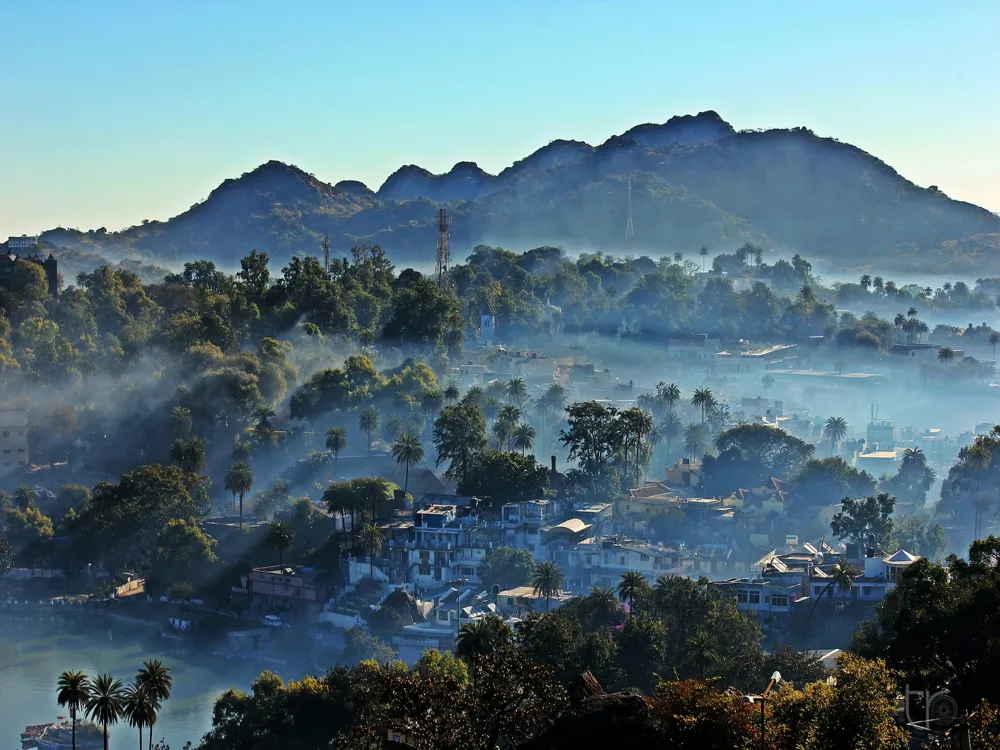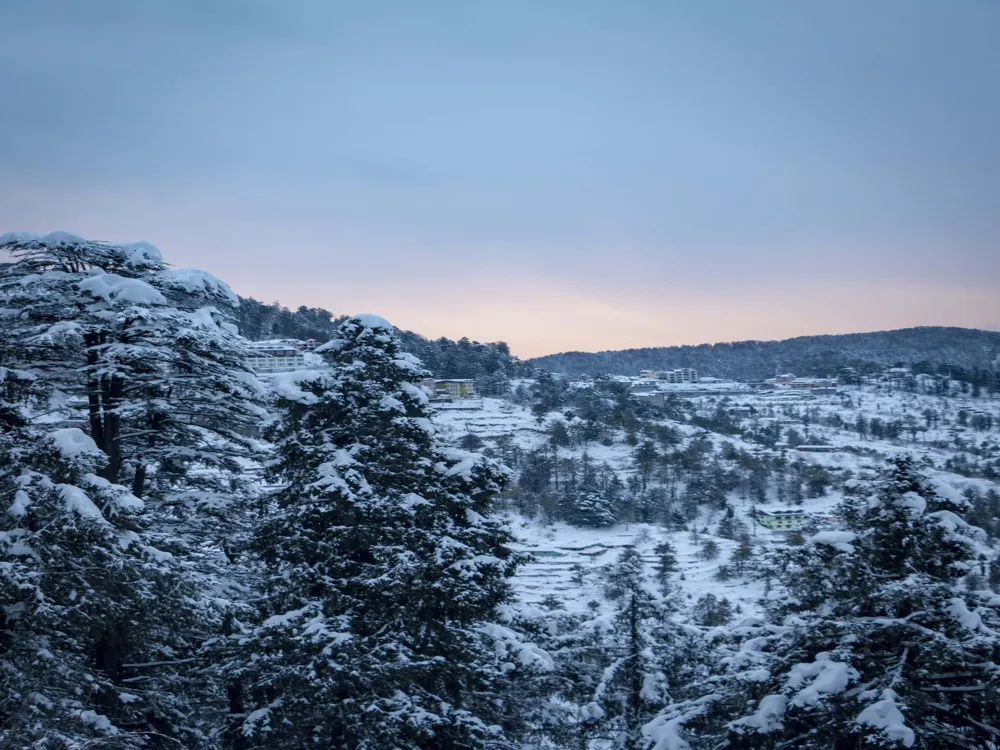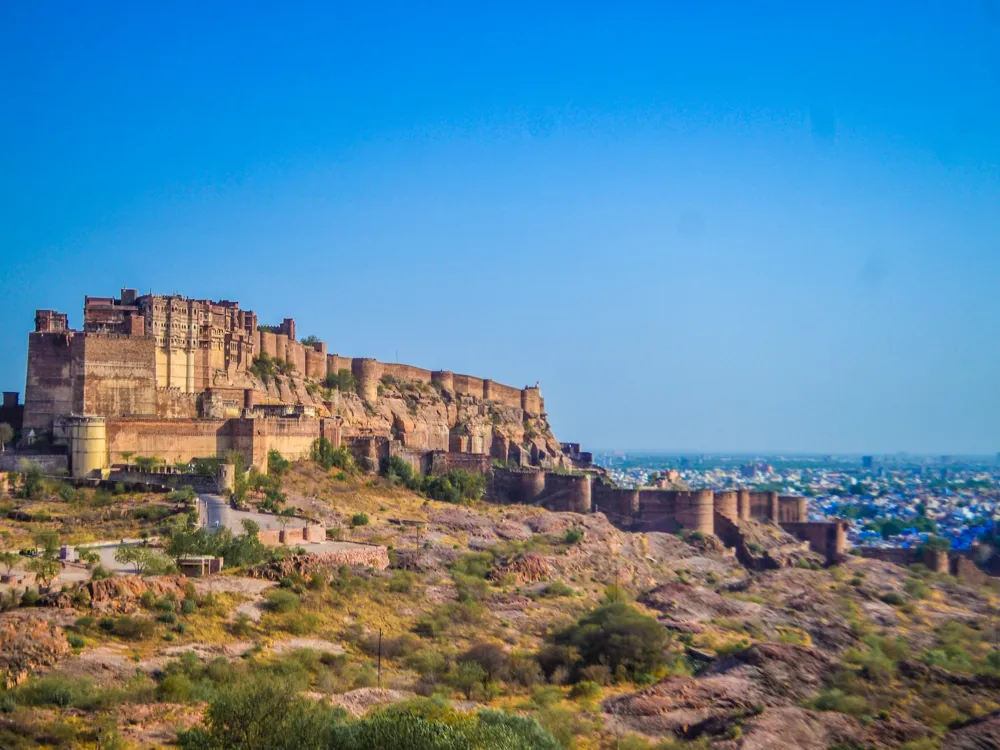The Akbari Masjid in Ajmer, Rajasthan, stands as a splendid example of Mughal architecture and a historical landmark of India. Built by the great Mughal Emperor Akbar in 1571 AD, the mosque is situated within the Ajmer Sharif Dargah complex, one of the most sacred Islamic shrines in India. This majestic mosque is not only a place of worship but also a symbol of the rich cultural and historical heritage of the Mughal era. Akbari Masjid's history is deeply intertwined with the Mughal Empire's expansion and religious tolerance. Emperor Akbar built this mosque as a token of gratitude after his visit to the shrine of Sufi saint, Khwaja Moinuddin Chishti, whose blessings are believed to have helped Akbar in his conquests. The mosque's location in Ajmer, a prominent pilgrimage center, highlights the harmonious blend of Islamic and Hindu cultures that has been a hallmark of the region for centuries. The mosque's architecture reflects the grandeur and vision of Akbar's reign. Built with red sandstone, the mosque is an architectural marvel, showcasing intricate carvings, magnificent domes, and towering minarets. The main prayer hall, spacious courtyard, and the beautifully carved Mehrabs depict the artistic and architectural prowess of the Mughal era. The mosque is not just a religious site but also a testimony to the architectural innovations and the secular outlook of Emperor Akbar, making it a must-visit destination for history enthusiasts and architecture lovers. The architecture of Akbari Masjid in Ajmer is a remarkable blend of Persian and Indian styles, reflective of the syncretic culture of the Mughal period. The mosque's structure is predominantly made of red sandstone, a signature of Mughal architecture. The façade of the mosque is adorned with intricate carvings and calligraphy, which add to its majestic appearance. The mosque features a large central dome, flanked by smaller domes, each intricately carved and adorned with lotus motifs, which are significant in both Islamic and Hindu traditions. The central dome is supported by sturdy pillars that exhibit fine craftsmanship and attention to detail. The pillars not only provide structural support but also add to the aesthetic appeal of the mosque. The prayer hall of Akbari Masjid is a spacious area with a high ceiling, allowing for natural light to illuminate the interior. The hall houses several Mehrabs, each beautifully carved and decorated, indicating the direction of Mecca. The mosque's floor is adorned with geometric patterns, typical of Islamic art. The blend of geometric designs with floral motifs showcases the fusion of different artistic styles under the Mughal rule. A unique feature of Akbari Masjid is its integration with the surrounding landscape. The mosque's open courtyard provides a serene environment for contemplation and prayer. The courtyard is lined with arcades, providing shade and space for worshippers. The harmonious integration of architecture with nature makes Akbari Masjid not just a place of worship but a sanctuary of peace and spirituality. Visitors to Akbari Masjid should dress modestly and behave respectfully. It is recommended to wear clothing that covers shoulders and knees. Visitors should remove their shoes before entering the mosque area. Photography is usually allowed in the mosque, but it is advisable to check for any restrictions and respect the privacy of worshippers. Avoid flash photography inside the prayer hall. The mosque is less crowded during weekdays, making it an ideal time for a visit. Early mornings or late afternoons are preferable to avoid the heat and to experience the mosque in softer light. Consider taking a guided tour to gain deeper insights into the mosque's history and architecture. Guides can provide valuable information not readily available in guidebooks. Akbari Masjid, located in the heart of Ajmer, Rajasthan, is easily accessible by various means of transportation. The nearest airport is Jaipur International Airport, about 135 kilometers away. From there, visitors can take a taxi or bus to Ajmer. Ajmer is also well-connected by rail, with Ajmer Railway Station being a major stop for many trains. For those preferring road travel, Ajmer has a good network of roads connecting it to major cities like Delhi, Jaipur, and Mumbai. Local transport in Ajmer, including taxis, auto-rickshaws, and buses, is readily available to reach Akbari Masjid. Read More:Overview of Akbari Masjid, Ajmer, Rajasthan
Architecture of Akbari Masjid
Tips When Visiting Akbari Masjid
Respect Cultural Norms
Photography Guidelines
Best Time to Visit
Guided Tours
How To Reach Akbari Masjid
Akbari Masjid
Ajmer
Rajasthan
₹ 9,000 onwards
View ajmer Packages
Weather :
Tags : Mosque
Constructed By : Emperor Akbar
Constructed in : 1571 AD
Timings : 24 hours
Planning a Trip? Ask Your Question
Ajmer Travel Packages
View All Packages For Ajmer
Top Hotel Collections for Ajmer

Private Pool

Luxury Hotels

5-Star Hotels

Pet Friendly
Top Hotels Near Ajmer
Other Top Ranking Places In Ajmer
View All Places To Visit In ajmer
Faq on Ajmer
What is the Akbari Masjid, and where is it located?
The Akbari Masjid is a historical mosque located in Ajmer, Rajasthan, India. It is situated within the Ajmer Sharif Dargah complex, which houses the tomb of the Sufi saint, Moinuddin Chishti.
Who built the Akbari Masjid, and when?
The Akbari Masjid was commissioned by the Mughal Emperor Akbar in the late 16th century as part of his homage to the Sufi saint Moinuddin Chishti, whose teachings he greatly admired.
What is the architectural style of the Akbari Masjid?
The mosque showcases a blend of Islamic and Mughal architectural styles, featuring intricate carvings, arches, and domes. It reflects the rich architectural heritage of the Mughal era.
Can visitors pray at the Akbari Masjid?
Yes, the Akbari Masjid is an active place of worship, and visitors can pray there. It is especially busy during times of Islamic significance, such as Ramadan and Eid.
What are the visiting hours for Akbari Masjid?
The visiting hours can vary, so it's recommended to check the latest timings before planning a visit. Generally, the mosque is open to visitors every day from dawn until dusk.
View ajmer Packages
Weather :
Tags : Mosque
Constructed By : Emperor Akbar
Constructed in : 1571 AD
Timings : 24 hours
Planning a Trip? Ask Your Question
Ajmer Travel Packages
View All Packages For Ajmer
Top Hotel Collections for Ajmer

Private Pool

Luxury Hotels

5-Star Hotels

Pet Friendly
Top Hotels Near Ajmer
Other Top Ranking Places In Ajmer
Faq on Ajmer
What is the Akbari Masjid, and where is it located?
The Akbari Masjid is a historical mosque located in Ajmer, Rajasthan, India. It is situated within the Ajmer Sharif Dargah complex, which houses the tomb of the Sufi saint, Moinuddin Chishti.
Who built the Akbari Masjid, and when?
The Akbari Masjid was commissioned by the Mughal Emperor Akbar in the late 16th century as part of his homage to the Sufi saint Moinuddin Chishti, whose teachings he greatly admired.
What is the architectural style of the Akbari Masjid?
The mosque showcases a blend of Islamic and Mughal architectural styles, featuring intricate carvings, arches, and domes. It reflects the rich architectural heritage of the Mughal era.
Can visitors pray at the Akbari Masjid?
Yes, the Akbari Masjid is an active place of worship, and visitors can pray there. It is especially busy during times of Islamic significance, such as Ramadan and Eid.
What are the visiting hours for Akbari Masjid?
The visiting hours can vary, so it's recommended to check the latest timings before planning a visit. Generally, the mosque is open to visitors every day from dawn until dusk.








